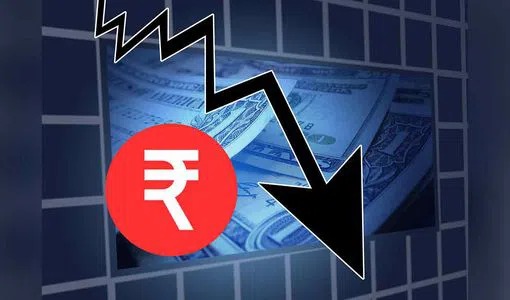In a dramatic shift, the Indian rupee declined against the US dollar after Indian military attacks on Pakistan, which were initiated in response to a fatal militant attack in Kashmir. The increased geopolitical tensions between the two nuclear powers have sent financial markets into shock, inducing risk aversion among investors and concern regarding regional stability. Here's a close examination of how the events transpired and affected the rupee and wider markets:
Key Highlights
Rupee Falls to Multi-Month Low:
The Indian rupee settled at 85.45 against the US dollar, its lowest level in a few months. The currency opened weaker and kept falling during the trading session as news of the strikes emerged, showing investor nervousness about the possibility of further escalation.
Market Volatility Spikes:
Forex markets witnessed increased volatility as traders rushed to hedge their exposures. The rupee crossed the important psychological barrier of 85 against the dollar, and RBI was keeping a close watch for any indication of disorderly market conditions.
Flight to Safety:
Investors have rushed to safe-haven currencies like the US dollar and gold, draining money from emerging market economies, including India. This worldwide risk-off mood was also spurred by continued uncertainty about the health of the US economy and the Federal Reserve's interest rate stance.
Equity Markets Under Pressure:
Indian stock indices such as the Nifty 50 and Sensex trailed their Asian counterparts, sensing overall market nervousness. Stocks in the defense and energy sectors gained on hopes of heightened government expenditure, but the overall mood was downbeat.
Heightening Diplomatic Steps:
Besides military action, India canceled a major river watersharing agreement with Pakistan, and Pakistan reciprocated by limiting its airspace for Indian airlines. These actions marked a hardening of diplomatic stances, further spooking investors.
Analyst Insights:
Market experts noted that the weakness of the rupee is a direct reaction to geopolitical uncertainty, which has been exacerbated by a rising US dollar. They cautioned that escalating tensions could bring about persistent capital outflows and further weakening of the currency.
Central Bank Vigilance:
RBI is likely to stay alert and could step into the forex market if volatility goes up. Nevertheless, officials until now have desisted from overt intervention, indicating that markets are supposed to get their own level.
The Road Ahead
With tensions not showing any short-term signs of easing, market players are preparing themselves for ongoing volatility in the coming days. Analysts recommend that investors be on guard, watch geopolitical events closely, and diversify portfolios to reduce risk.
Sources: Reuters, Mathrubhumi, Exchange Rates UK







